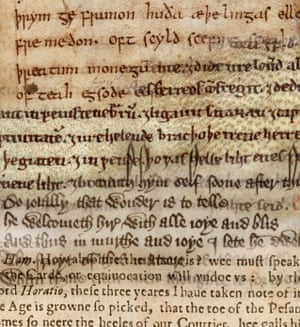One is very accustomed to capitalize the letter 'I' whenever used in a sentence and it comes naturally to people who have been learning and writing English from childhood.
But does one know the reason behind the only exception in the language?
One might say it is the GRAMMAR RULE, duh!
Right, it is a Grammar rule now, it was not earlier. What if I say the letter 'i' did not even exist in Old English?
You heard me right! It is quite unusual because this was not the practice in Old and Middle English.
Take a look at these examples
OLD ENGLISH- Ic æt undergiete
MODERN ENGLISH- I understand.
There are quite a few reasons which I will be mentioning in this post.
So, let's get started,
Well, historians say that there was no letter i until the late 15th century The pronoun used to be spelled variously in Old English like 'ic' or 'ich'. At that time it was not capitalized.
Overtime when English got more refined, the word lost its consonants and turned simply into 'i'. Though the word itself contains a lot of weight due to its weak appearance scribes thought it could easily get mixed with the preceding/succeeding word or could be overlooked in a paragraph or a sentence. So they started capitalizing the letter 'i'
Another credible reason was the possibility that earlier manuscripts and typography played a major role in shaping the character of 'i'. Manuscripts were one of the major sources to store the information. and writers were skeptical to use the letter 'i' because if mistaken or in case of minor physical damage the letter would have been misinterpreted and the true form couldn't have been restored.
If you say why only the letter 'i' has been capitalized what about other letters like it, we, a for instance? The reason is, their presence isn't as negligible as the thin lowercase 'i' which uses the least ink in a script.
As there are always two sides to a coin I cannot decide on if the letter 'i' had been prioritized over all the letters and stood as the only letter to be capitalized in the English Language? Or should I consider 'i' as the only letter which had to let go of its consonants and made to feel differentiated, unworthy?
Let me know what do you think in the comments!
Here is an article link which was published in The New York Times Magazine, you can go through for more in-depth info on this topic.
Link- https://www.nytimes.com/2008/08/03/magazine/03wwln-guestsafire-t.html
But does one know the reason behind the only exception in the language?
One might say it is the GRAMMAR RULE, duh!
Right, it is a Grammar rule now, it was not earlier. What if I say the letter 'i' did not even exist in Old English?
You heard me right! It is quite unusual because this was not the practice in Old and Middle English.
Take a look at these examples
OLD ENGLISH- Ic æt undergiete
MODERN ENGLISH- I understand.
There are quite a few reasons which I will be mentioning in this post.
So, let's get started,
Well, historians say that there was no letter i until the late 15th century The pronoun used to be spelled variously in Old English like 'ic' or 'ich'. At that time it was not capitalized.
Overtime when English got more refined, the word lost its consonants and turned simply into 'i'. Though the word itself contains a lot of weight due to its weak appearance scribes thought it could easily get mixed with the preceding/succeeding word or could be overlooked in a paragraph or a sentence. So they started capitalizing the letter 'i'
Another credible reason was the possibility that earlier manuscripts and typography played a major role in shaping the character of 'i'. Manuscripts were one of the major sources to store the information. and writers were skeptical to use the letter 'i' because if mistaken or in case of minor physical damage the letter would have been misinterpreted and the true form couldn't have been restored.
If you say why only the letter 'i' has been capitalized what about other letters like it, we, a for instance? The reason is, their presence isn't as negligible as the thin lowercase 'i' which uses the least ink in a script.
As there are always two sides to a coin I cannot decide on if the letter 'i' had been prioritized over all the letters and stood as the only letter to be capitalized in the English Language? Or should I consider 'i' as the only letter which had to let go of its consonants and made to feel differentiated, unworthy?
Let me know what do you think in the comments!
Here is an article link which was published in The New York Times Magazine, you can go through for more in-depth info on this topic.
Link- https://www.nytimes.com/2008/08/03/magazine/03wwln-guestsafire-t.html


No comments:
Post a Comment